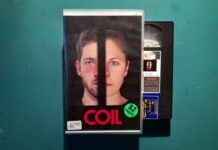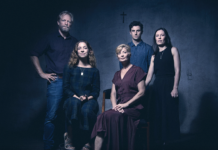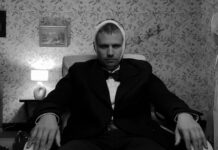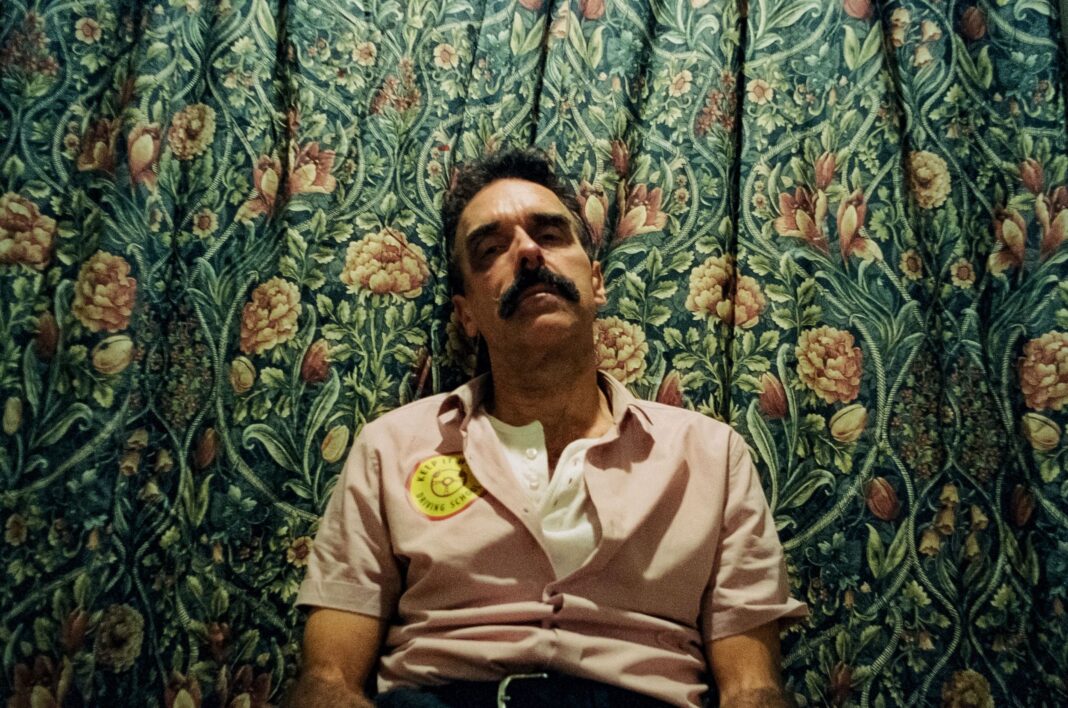Richard James Allen is happy to talk about collaborating on producing feature films, but his preference is to work on films where he can also have a role in front of the camera.
“I will consider producing feature films if they have amazing roles for me in them,” he laughs.
“Otherwise. I question whether I have the time because life is short.”
As a busy creative working across many areas, time is something which for Allen is in short supply.
He can currently be seen acting as the dysfunctional but mysterious and obsessed driving instructor Hans in Parish Malfitano’s debut thriller Bloodshot Heart, a film he also co-produced.
Then there is a feature film script which he hopes to direct, and he is also producing a film by his partner Karen Pearlman. With her, he is a co-director of the Physical TV Company, which “creates drama, documentary and dance films informed by research into the history and the future potential of the cinematic medium.”
There is also his novel, More Lies, which will be published by Queensland’s Interactive Publications, the official launch will be in Newtown in September.
Judging by his work in Bloodshot Heart and his book, Allen clearly likes twisted thrillers with captivity, hostages and kidnapping as key themes.
Here’s the synopsis of his book: “a highly referential comedy thriller about a writer being held hostage in their own apartment and forced to type to hide the manoeuvres of a femme fatale, holding a pearl handled gun, and her brother, a small-time thug with big time ambitions. This wild tale about assassination, lost gold, betrayal, passion and identity theft engages the reader in the many layers of the author’s witty but deceptive journey.”
In Bloodshot Heart, the meek Hans is transformed by the arrival of a beautiful lodger, who reminds him – or does she? – of someone from his past, someone with whom he shared an intimate story.
Energised by the memory and rebelling against the claustrophobia of living with his traditionally minded Italian mother, Hans breaks out and tries an outrageous kidnap scam with two loser brothers which seems to fail miserably. Or does it?
Telling more would be to spoil the plot, and after doing the rounds of independent cinemas in June the film is likely to be available on streaming services in Australia. Internationally, it has hit the film circuit with screenings in the US, Brazil, and soon in Italy, whose 1970 cinema is paid homage to in Bloodshot Heart.
“Brazil has been in intense lockdown because of COVID and it was amazing in the q and a with the audience after the screening that many of them identified with Hans’ story as one of liberation,” says Allen.
“His breaking out was a symbol for them, but I would never have seen it like that.”
On the process of making the film, Allen sees it as a template for other independent films to follow – eschewing normal channels and just getting on with production.
Director Maltifano had been obsessed with the idea for some time, and had the chance to do something about his obsession while at the AFTRS. So he made an eight minute “proof of concept” – with Allen in the role of Hans and considered his options.
“We had a choice and I said to Parish ‘if you want we can put this through the funding bodies and by the time it comes out in ten years it will be a totally different script,’” says Allen.
“He was super passionate to make it now, and needed to make it to move on with his life creatively, so we forgot about the funding bodies and just moved forward and made it.
“Every film is a complex series of funding and deals and opportunities and what we did was gather a lot of people around a really strong and rich and individual idea, and that inspired people and gave them an opportunity to do things they wouldn’t otherwise.”
So with all these collaborators and their creative input, how close was the final film to the original idea?
“I have to channel Parish here, but he talks about it as having evolved, but being close to the essential vision,” says Allen.
“When you bring in other people they expand and enhance the vision. The vision gives them something to work with to shape into a coherent whole, and ultimately is think the film is close to where we started but is more expansive than we could have imagined.”





















